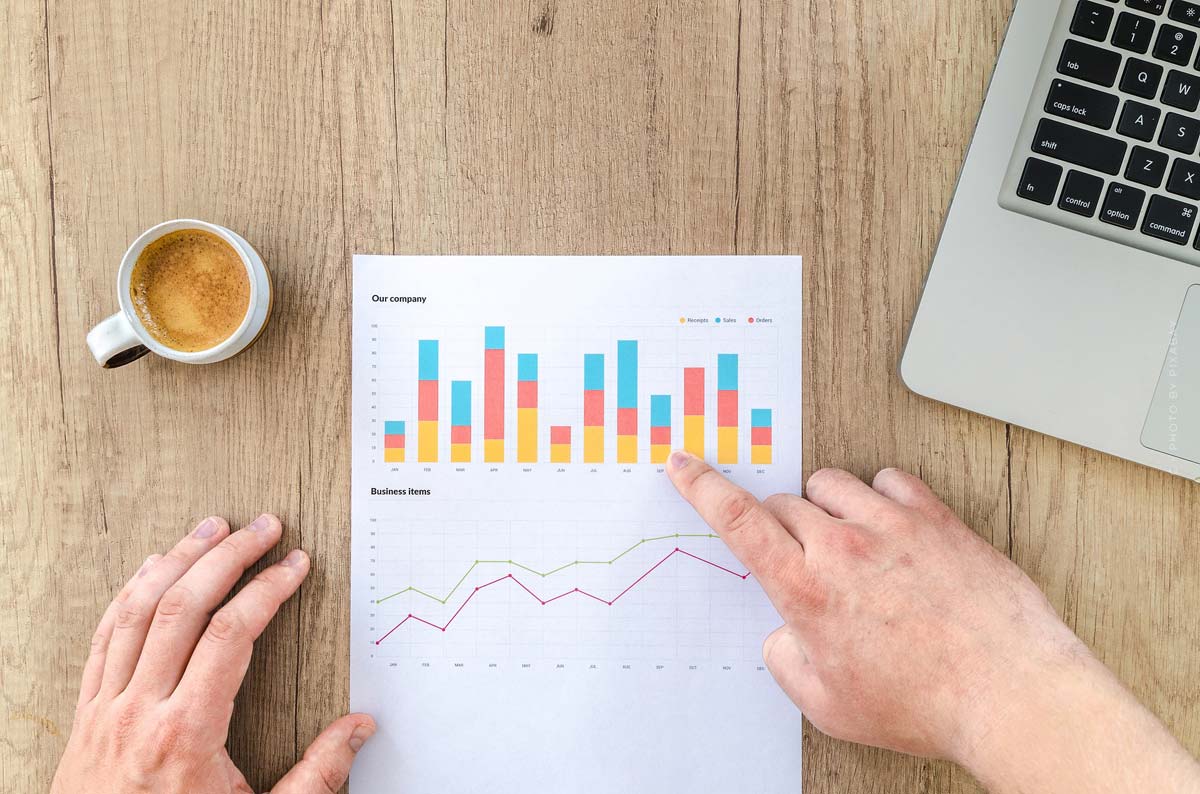Save taxes: Where to start! Income, corporation, asset accumulation – examples
Tax Saving: Classification, income, turnover, coaching – tax benefits and tax concessions as well as tips and tricks on the subject of “saving taxes” are essential for entrepreneurs, freelancers, pensioners & Co. in order not to lose track of the many laws and guidelines in tax law. Although everyone is familiar with the word “tax”, only a few people actually know what taxes are. What taxes are there? For what do we pay taxes and how much? To whom do we pay taxes? What tax tricks and tax saving tips are there? And very important: How does saving taxes work at all and which tax saving tools should I use? You can find out about this and much more below, quickly and easily.
Taxes & duties in Germany: income, corporation, assets
Taxes in a nutshell: In general, a tax is defined as a certain financial contribution to the state, which has to be paid on wages, income or assets. The word tax comes from Middle or Old High German and can commonly be translated as “support” or “support”. This is apt in that taxes serve as the main source of government revenue and are thus essential to the state. They form the primary portion of the state budget, which in turn finances and makes expenditures in the interest of the common good.
About three quarters of tax revenue in Germany is collected from just six types of tax:
- Sales tax
- Income tax
- Wage tax
- Trade tax
- Corporation tax
- Import sales tax
Live at it: Tax Coaching – Experience & Tip
Want to become a real estate investor yourself? If you write about real estate, you need to educate yourself. More specifically, when it’s no longer just about owner occupancy, but also renting. Because, the biggest item on the expense side is taxes. The more you earn, the more taxes you have to pay – the problem is clearly defined, what to do? Learn from experience, from those who have made it. Many say that the Next Level Tax Coaching is the best in Germany. Reason enough to be there yourself.
Read more about tax coaching here:
Tax classification – business capital, property, land acquisition, etc.
What taxes are there? In addition to the taxes already mentioned, there are many other types of taxes, from A for general taxes to V for excise duties. For the sake of clarity, taxes in Germany are divided into categories according to certain criteria, depending on the perspective from which they are viewed. The following four tax classifications are common:
- Financial Statistical Classification
- Business classification
- Financial classification
- Classification for tax purposes
Let’s take a closer look at the tax classification: What are taxes on? On the one hand, there are taxes levied on income. These include, for example, trade income tax and trade capital tax, property tax, wealth tax and corporation tax. Together with the other taxes, they can be further divided into income taxes and other taxes.
Examples of income taxes
- Trade tax
- Licence tax
- Property tax
- Business capital tax
Examples of other taxes after income
- Wealth tax
- Income tax incl. church income tax
- Corporation tax
- Inheritance and gift tax
On the other hand, there are taxes on the use of income, i.e. types of taxes that are levied on purchases of goods or services or on savings. In addition to general taxes, these include consumption and excise taxes, taxes on real transactions and special taxes on legal transactions. The best-known types of tax here are sales tax and motor vehicle tax.
Examples of taxes on the use of income
- General taxes: Value added tax
- Taxes on consumption and excise duties: Mineral oil tax, Other taxes
- Real transport taxes: motor vehicle tax
- Special legal sales taxes: real estate transfer tax, insurance tax
Consumption and excise taxes declared as “other taxes” include taxes on salt and sugar, on coffee and tea, and on beverages (plus specific taxes on beer and sparkling wine). Tobacco products and illuminants are also among the products subject to excise duties. Furthermore, they include amusement tax as well as dog and hunting tax. Taxes paid on luxury horses and motorboats also fall under this collective term, as does the tax on second homes. Customs duties and casino taxes are special types of taxes and are therefore not included in the above scheme.
So it’s quickly apparent – if you don’t want to sacrifice your consumption or avoid spending by saving excessively, you should learn how tax saving works properly:
Direct and Indirect Taxes – Burden, Debt & Obligation to Pay
In addition to the general classification of taxes, there is also a distinction between direct taxes and indirect taxes. The criteria used for the classification or allocation are based on the one hand on the assessment and collection technique and on the other hand on the passability of the taxes. Furthermore, the tax capacity is examined.
Which taxes are considered direct or indirect is assessed on the basis of three criteria:
- Assessment and survey technique
- Overwhelmingness
- Tax capacity
In essence, however, only one simple question arises: who is the tax bearer and who is the tax debtor? After all, in the case of direct and indirect taxes, it is a question of the relationship between the person who bears the tax burden and the person who has an obligation to pay the authorities.
Direct taxes explained simply – income, car, corporation & land
Direct taxes are assessed and generally cannot be passed on. They are interpreted either personally or objectively, depending on the ability to pay. If someone is both a taxpayer and a debtor, he is considered a taxpayer and is directly responsible for paying all taxes due to the tax office.
Examples include:
- Income tax
- Vehicle tax
- Corporation tax
- Property tax
Wage and capital gains taxes are considered withholding taxes and are classified as direct taxes, although they do not follow the principle of immediacy.
Indirect taxes explained simply – mineral oil, electricity, tobacco & turnover
Indirect taxes are set on the basis of tariffs and are usually passed on in part or in full to the final purchaser. Their performance is indirect on the use of income and property transactions. If a taxpayer is not also a tax debtor, he pays the taxes due only indirectly, namely to the tax debtor. The tax debtor then forwards these indirect taxes as a taxpayer to the appropriate authority.
Common examples are:
- Mineral oil
- Electricity tax
- Tobacco tax
- Sales tax
It is easy for taxpayers to keep track of what taxes are being paid:

Tax Saving Tips: Marriage, rent, allowances & donations
So there are lots of taxes and many of them we pay without really being aware of it. This can quickly become expensive, especially for high earners who like to invest a lot. Saving taxes by investing is a good option in this context. It is therefore all the more important to know which tax breaks are available, which tax advantages can be of benefit to you and where taxes can be easily and efficiently saved or completely avoided.
Tax relief for child, severe disability, foundation & Co.
Tax allowances are state support measures and are granted in the case of reduced ability to pay, for example due to raising children, in the case of increased costs based on a disability, among other things, as well as for certain actions. The latter includes, for example, donating to a charitable organisation or foundation.
Tax benefits are provided by the following provisions:
- Advertising costs
- Special editions
- Exceptional charges
- Allowances
Tax advantage with marriage, renting, child benefit & Co.
Tax advantages arise from certain events, first and foremost marriage or the registration of a civil partnership, because then the so-called splitting of spouses’ income is applied. The selection of the right combination of tax brackets can also have a noticeable financial and, above all, tax effect in marriage and, last but not least, a partnership can result in a double lump-sum savings amount as well as significantly higher tax-free gift amounts.
Other factors for tax advantages are children in the sense of child benefit or child allowances. Classically, real estate also brings tax advantages: A condominium, for example, can result in tax advantages insofar as craftsmen’s work is carried out in an owner-occupied apartment or expenses are incurred when renting out the condominium.
Tax benefits for marriage, civil partnership:
- Marriage splitting
- Combination of tax classes
- Double saver’s allowance
- Tax-free gift amounts
Tax advantages with one or more children:
- Child benefit
- Child allowances
Real estate tax benefits:
- Handicraft work for owner-occupied dwelling
- Expenses in connection with the letting of property
Tax Coaching: Save taxes like the big boys
Due to the multitude of taxes and the many possibilities to receive subsidies or to secure tax advantages, it is not at all easy to make a general statement about tax savings. In addition, it makes a big difference whether the savings are to apply to a company or a private individual or freelancer in self-employment: A GmbH is set up there differently than a GbR, a pensioner has other possibilities than a sole proprietor or student. Particularly in the case of large and high-value capital investments, caution is required in order not to put one’s foot in one’s fiscal mouth.
Tax saving tools: up to date, high quality & serious
What is the best way to save on taxes? Figuring that out isn’t even that easy, because there is help available through different educational media. Some of them are paid, others are free. The most important criteria when choosing the right tax saving tool are timeliness, quality and seriousness.
Here are some examples of tax saving tools:
- Training and development
- Tax Coaching
- Tax consultancy
- Books and e-books
- Software and mobile apps
- Internet platforms (chats, forums, blogs)
- Internet portals
- Social Media (Facebook, Twitter, Instagram, YouTube)
Tax coaching & personal advice: learning from professionals
Further education and training measures are usually costly and time-consuming. In addition, they are often tied to certain prerequisites, such as a completed vocational training or several years of professional experience. This often lacks the time and financial resources, plus: the know-how to save taxes can only be a long-term goal here and does not give immediate help.
Alternatively, there is the possibility to participate in a tax coaching or seminar or webinar, but also here the factors of time and money are in the foreground. Due to the wide range of offers, it is also difficult to recognize reputable providers as such. An appointment with a tax consultant therefore seems to make sense, but the expertise here is usually charged at an extremely high cost. Precisely because of their studied expertise, it can also be difficult at the comprehension level to communicate clearly and technically correctly or to maintain an overview in the confusion of technical terms.
Tax Coaching Media: Book, CD & Mobile App
Books are, of course, a great option for those who love to read and want to gain knowledge in a DIY way. However, books quickly become outdated and the tax topic in particular is revisited every year. Moreover, the only way to tell which books are of quality is by looking at user reviews. However, these can also be purchased and many users prefer to comment rather than provide accurate product reviews. The price range for tax-saving guidebooks is on average 10.00 euros and usually between 200 and 1,000 pages per book.
E-books are often a little cheaper and can be accessed anywhere. The prerequisite here is, of course, a suitable technical device with sufficient storage space. The factors of topicality, quality and evaluation correspond to those of hard and soft cover books.
Books on tax saving are often heavy fare and tedious to read through.
Tax saving software is available in the form of CDs for the computer and apps for the tablet and smartphone owners. Here, too, many products are available and it is advisable to buy the latest version every year in order to stay up to date in terms of tax law. Assuming an end device that meets the technical requirements, the cost range for reputable programs on CD, for example, is around 20.00 euros to 40.00 euros and more.
The range of tax-saving apps is so extensive and confusing that a purchase – especially of a higher-priced product – should ideally only be made on the basis of a reliable recommendation. In both cases, the user-friendliness of the software can usually only be determined after purchase and installation on the end device.
Free of charge: Blogs, Portals, Networks
If you don’t want to spend money to learn more about efficient tax saving, the Internet is the right place to go: For saving taxes without spending money, there are many free online offers in the form of various Internet platforms, portals and social media networks that provide an extensive repertoire of tips, tricks and specialist information free of charge. Here, professional competence is the primary decision criterion, because tax tips should only be accepted from reputable sources.
Internet platforms: Tax saving tips in forum, chat room & blogs
Internet platforms: often dubious and arbitrary – On Internet platforms, for example, there are forums and chat rooms through which users can virtually exchange views on any or a given topic. The focus – and the risk – here is on personal opinions, subjective knowledge and individual thoughts. A blog, unlike forums and chats, is an often diary-like website that is publicly and unrestrictedly accessible to all web users. The information is completely subjective and of arbitrary content and is regularly expanded with further content. A certain seriousness cannot be assumed with internet platforms, as anyone can hide behind a virtual persona, user name or profile picture or pretend to be someone else. There is often a lack of orientation aids and clarity, so that research is time-consuming and yields questionable results.
Internet portals: Tips & tricks from tax experts
Internet portals: semi-serious marketing tools – Internet portals are also publicly accessible websites and usually have a lot of information on a concrete and specific topic. Some portals, on the other hand, publish a manageable amount of information on a variety of topics, so that expertise can only be assumed to a limited extent. Specific information must be filtered out and evaluated independently. However, many operators use Internet portals significantly to attract readers to their site and to win them as potential buyers for their paid products. In this sense, the web articles are to be understood as a marketing tool. Specific questions are not possible or desired, since many portals generate their articles via third-party authors and have only limited expertise in the various subject areas.
Tax optimization: “paying” taxes like Trump, Springer & Co.
If you want to understand how the “big guys” “pay” or save tax, then you should definitely also take a look at Lukinski. Actually a real estate agent for luxury properties, he often writes about tax saving tricks for entrepreneurs and companies in his blog.
Here are two more examples of tax models from the blog:
US President Trump pays only 750 euros in income tax, according to the New York Times. It gets even better, Trump paid no income taxes in 10 out of 15 years starting in 2000, according to the New York Times. Are these questionable tax saving strategies or just tax optimization? How does he do it?
Or here: Shares worth 1 billion, almost tax-free. “Billion-dollar gift for Springer CEO: shares largely tax-free”? Can I do that too? The entire share package has a volume of 15%. In the transfer, a law was exploited that should prevent the possible insolvency of companies. Due to the high volume, Axel Springer SE could…
Social media networks: Influencer tips on Instagram, YouTube & Co.
Social media networks: only to be viewed with scepticism – In recent years, social media products have become more and more prominent and their use is now a matter of course for many. Since social media platforms such as Facebook, Twitter and Instagram, for example, are mostly flooded with misinformation and fake users due to a lack of moderation and verification, it is rather less suitable as a reliable source of information for specific and complex topics such as tax saving.
Influencers often use trend waves and marketing strategies to raise their own profile and generate more reach. The truthfulness of their posts should therefore always be met with a healthy degree of scepticism. In addition, most knowledgeable people tend not to publish their knowledge on social media platforms, but rather on their own websites or not at all.
The only exception are verified video channels on various video platforms such as YouTube, which usually provide free insights into their areas of expertise. The high quality of their videos can be easily deduced from likes and comments, whereby the latter, in contrast to product reviews on Amazon & Co. are usually formulated in a more critical and topic-specific manner. Often, a personal exchange with the channel owner via comments or private message is possible. Another advantage results from the video format itself, as the YouTube influencer can explain complex topics clearly and gestures, language and wording often make it much easier for the viewer/listener to understand.
Google Search with SEO, SEA & SEM
In the age of modern media, a general search usually starts with Google. But in fact, the virtual search engine is not that helpful, because the search algorithms are often not intuitively understandable, advertisements are placed upstream and push organic content off the first pages. If you don’t know the right operators, you will often lose a lot of time with Google Search and in the end you might not even find exactly what you are looking for. Search Engine Advertising (SEA) places paid ads for companies and entrepreneurs; keyword research only works to a limited extent because not all relevant content has been designed for Search Engine Optimization (SEO);
When it comes to Google search, be careful because Search Engine Marketing (SEM) doesn’t necessarily show you results that are relevant to you:

Search Keyword: save taxes
With the keyword “save taxes”, the top search results show a colourful mix of newspaper articles, business and employee advice, tax software and tax apps, internet portals and an online platform for scholarships. Stiftung Warentest, of course, also has year-end tax tips. Then there’s YouTube, Amazon and the usual ads from Google itself. So, according to search engine marketing (SEM), the most hits are for sites that offer their own tax-saving products or dispense a broad mass of information to a non-specific target audience instead of subject matter expertise.
Search Keyword: save taxes help
Even with the addition of “help”, Google lists the same suspects almost unchanged. In addition, there are the Aktuell Lohnsteuerhilfeverein e. V. and the Vereinigte Lohnsteuerhilfe e. V., which only make their expertise on income tax available to club members for a fee and are primarily concerned with saving taxes as employees, pensioners, civil servants and students.
Search Keyword: save taxes seriously
Only at “Steuern sparen seriös” you will find a law firm and also a field report on Alex Fischer Steuer Coaching. Further down follows a YouTube recommendation to his YouTube channel.
But who is this Alex Fischer? A brief look at his curriculum vitae shows: Alex “Düsseldorf” Fischer is, by his own admission, an entrepreneur, real estate investor and business strategist. He is a book author and has a website with over 600 videos. Since May 2013, Alex Fischer has built up a following of 102,000 subscribers on his YouTube channel and convinces with almost 450 free explanatory videos on the topics of real estate, financing and also tax saving. His videos have so far (as of 10/2020) generated over 12.5 million views – an impressive figure for this range of topics.
After watching a few shorter videos, it becomes clear: Alex Fischer meets his viewers personally and at eye level. His charismatic demeanor and easy-to-understand explanations of even complex and dry topics such as pension statements and payment flows are certainly one of the reasons for the strong response on YouTube. The most popular video on the subject of “saving taxes” has been the one-hour contribution entitled “Save taxes by really understanding the tax game”. However, his YouTube channel also features many short videos with professional tips and tricks of around five to ten minutes in length, which are perfect for a short educational break to learn how to save taxes quickly and easily.
Theory & practice expertise through tax coaching
In a nutshell: The bottom line says that there are many different mediums and tax saving tools to gain knowledge. Especially the little tricks for everyday life with taxes can often be found without much effort. Ultimately, however, we definitely recommend tax coaching for investors and high earners.
Tax consultants – experts in tax declaration
It is not enough to find a tax expert who has acquired the theoretical knowledge during several years of study. A tax consultant, for example, undoubtedly possesses comprehensive expertise in the subject area of “taxes”, but his or her task essentially consists of keeping records of business cash flows, preparing annual financial statements and tax returns, and reviewing tax assessments. In addition, there are the wage and salary statements as well as the representation of one’s own clients in disputes. Accordingly, a tax consultant can
Their know-how therefore extends primarily to tax declaration and legal enforcement as well as to answering business management questions. In-depth individual and ongoing tax law advice and optimisation of tax structuring is rarely covered and if it is, you may fail due to your own lack of knowledge and understanding.
Are you looking for a good tax advisor near you? Read our recommendations all over Germany here! Find a tax consultant
Tax coaching – numerous offers offline & online
Following the principle of supply and demand in the market, there are masses of providers for tax coaching, design and optimization, and intensive tax consulting. As already mentioned above, the classic self-learning offers and educational media such as books, e-books, CDs and mobile apps are often only sufficiently helpful in terms of saving taxes.
Internet platforms are also full of providers without any significant expertise, let alone field-tested experience in the world of taxes. Especially on social media platforms, there are many young influencers who have just graduated from school or started their studies and, despite their lack of expertise, give lots of tips and advice. Their seriousness can and should therefore be questioned in any case and examined in detail in each individual case.
Taxes are a matter for the boss – practical experience counts
It is therefore essential to find a specialist who can come up with practical knowledge and knows the mistakes and pitfalls in tax law from personal experience. Someone like this has already experienced and overcome the problems you may be facing at the moment and knows exactly what you need to do and what works.
“Taxes are a matter for the boss” is a principle that is fully applicable here. Tax structuring can hardly be delegated to the tax advisor you trust, since he does not know your actual situation at all and even less knows which ideal you are aiming for. In the end, the management itself must develop a professional understanding in order to lead the tax advisors and staff positions in a targeted manner to where their knowledge can be used in the best interest of the company in order to advance and continuously improve the entire company.
Tip: Professional online tax coaching
With the above information and tax saving tips you are well prepared for saving taxes in everyday life. However, if you have already built up a certain amount of assets and invest a lot in capital and financial investments, you will only smile at these tips and tricks. With an annual income of more than 80,000 euros, the little 1×1 of tax saving is no longer enough, because then it gets really complicated and instead of cent amounts, it’s about four- and multi-digit euro amounts. For this reason it is often said: “Taxes are a matter for the boss”. Because only a boss who knows about taxes himself can take his company to the next level.
Successful real estate investor and entrepreneur Alex Fischer has already proven his expertise and has been playing in the top league in terms of tax law and entrepreneurship for several years. He shares 80% of his experience with the world for free via his YouTube channel. However, if you want to take your life into your own hands and reach the next level as a tax-savvy top entrepreneur, you should consider a comprehensive and content-rich tax coaching.
Apply for the Next Level Tax Coaching
After the application process, the welcome area awaits you with a personal video welcome from Alex Fischer. In addition to the basics and typical mistakes and traps in tax law, you can expect numerous chapters on the topic of “tax planning and tax optimization”. You will not only learn how to save taxes efficiently and how to take advantage of subsidies, but also how to structure your company better or how to put real estate into constructs. In total, you will receive eight weeks of professional tax content with a high level of information, you can personally exchange ideas with like-minded people and specialists and even participate in the success of the tax coaching yourself. The testimonials of those who have already participated in a tax coaching by Alex Fischer speak for themselves.
If you would like to learn more about Next Level Tax Coaching by Alex Fischer:
- Alex Fischer Tax Coaching – Application
- Tax Coaching Experiences – Participant Interviews
If you would like to read up a bit first, I recommend the FIV experience report. Here you can learn everything about the basics of Next Level Tax Coaching and follow our personal experiences week by week:
New! Finally done: Tax Coaching from AF
If you write about real estate, you have to educate yourself. More concretely, when it is no longer just about personal use, but also about renting. Because, the biggest item on the expense side is taxes. The more you earn, the more taxes you have to pay – the problem is clearly defined, what to do? Learn from experience, from those who have made it. Many say that the Next Level Tax Coaching is the best in Germany. Reason enough to take part yourself. You want to become a real estate investor yourself?
Read more about tax coaching here:
Tip: Capital investment – portfolio, facts, risks
Our XXL guide to investments tells you everything you need to know about investments. From stocks and cars to precious metals and designer fashion to jewelry and asset management.
Capital investment XXL – real estate, cars and much more
Capital investment – 1,000 euros, 10,000 euros, 100,000 euros, 1 million euros from when is it worth investing in real estate, shares, funds, overnight money, cars and art? Consumers can use different possibilities to invest capital. There are many mistakes. Therefore, investors should know in advance what risks they actually want to take. For the final selection of the individual capital investment is important, how much capital you want to invest. Already knew? Real estate can offer additional tax advantages when investing capital.















